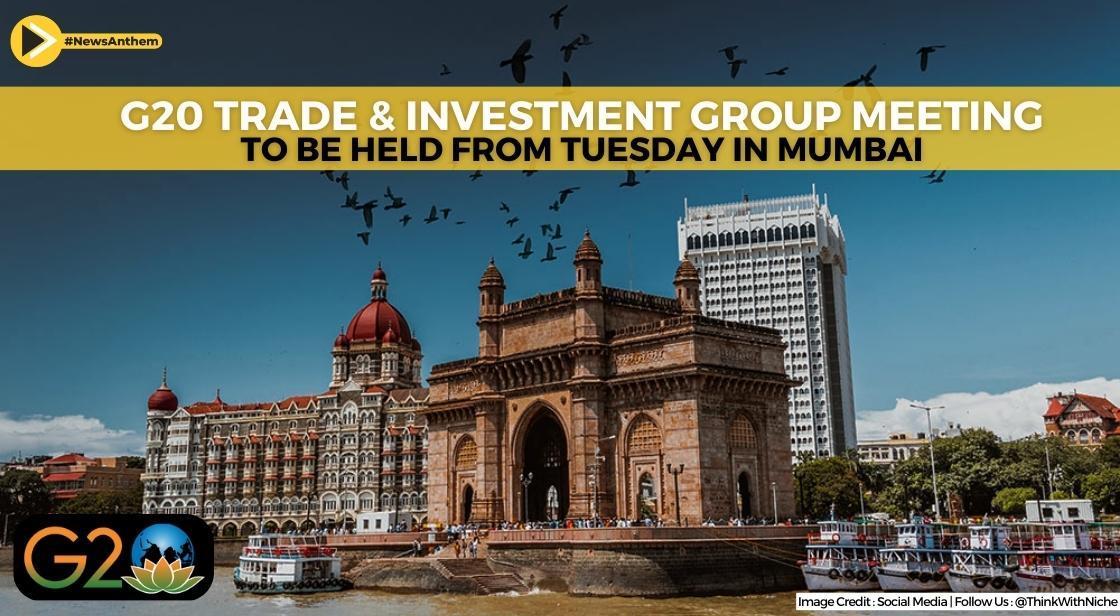G20 trade and investment group meeting to be held from Tuesday in Mumbai

News Synopsis
Mumbai will hold the first Trade and Investment Working Group (TIWG) conference under India's G20 Presidency from March 28–30.
Nearly 100 representatives from G20 Member Nations, invitee countries, regional groups, and international organizations will part in the three-day summit and discuss how to speed up International Trade and Investment.
An international conference on "Trade Finance" will be placed on the opening day of the upcoming event. The Export Credit Guarantee Corporation of India (ECGC) and the EXIM Bank of India are the organizations behind this conference.
Trade Finance Supports Economic Growth and it is integral for maintaining international trade flows, for mitigating risks emerging from tight liquidity. One or more trade finance instruments, such as a letter of credit, supply chain financing, invoice discounting, and receivables financing, are used in about 80% of all international trade.
Banks, Trade Finance Businesses, Export Credit Agencies, Insurers, Importers, and Exporters are just a few of the parties who participate in International Trade Finance. Trade financing is the lifeline of cross-border trade. It is projected that in 2020, $9 trillion in Trade Finance Transactions were supported by Major Global Banks.
Even so, the trade finance gap is growing. The Asian Development Bank (ADB) has predicted that the gap, which was $1.5 trillion in 2018, has now grown to $ 2 trillion. Hence, it is crucial to think critically about practical solutions that, by utilizing the Power of Digital Tools and Technology, can close the financing gap and make it accessible.
The growing trade financing gap has a disproportionately negative impact on Micro, Small, and Medium Businesses (MSMEs), which support livelihoods and contribute to Global Economic Growth in both developing and wealthy nations.
The conference will have two sessions in this regard. In order to close the trade finance gap, the first session will focus on the role that banks, financial institutions, development finance institutions, and export credit agencies play. The second session will explore how digitalization and fintech solutions can increase access to trade finance.
The involvement of banks, financial institutions, institutions providing development financing, and export credit agencies to bridge the trade finance gap.
The first session will take a broad view of the present developments in global trade and trade finance, as well as their possible future developments. Current trends in international trade and trade finance in the face of the pandemic and rising import costs in developing nations are some key points of the discussion. Other points include the causes of trade finance gaps, such as lowered credit line support in the private sector and inflation cuts into bank lending limits, and the role of export credit agencies in bolstering trade finance.
In order to increase access to trade financing, the second session will focus on Advancing Digitalization and Fintech Solutions.
You May Like









